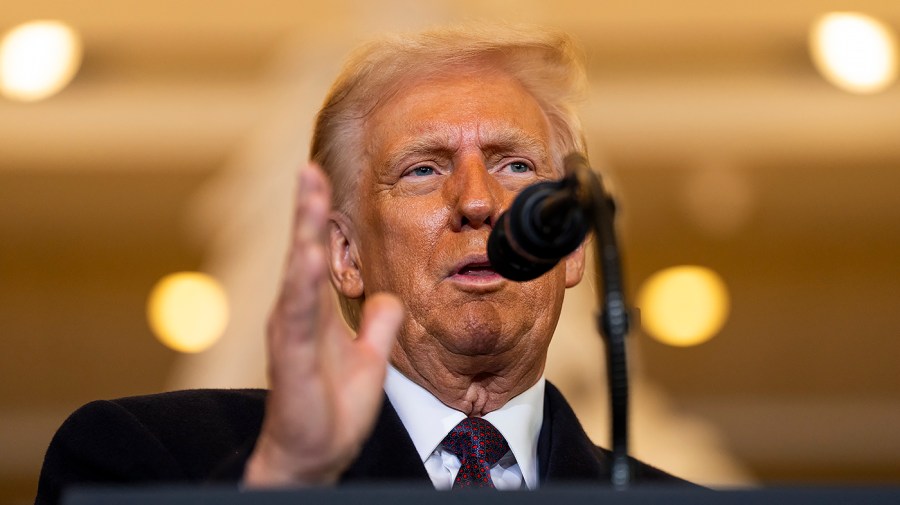
Justice Department (DOJ) officials fired several prosecutors who worked on President Trump’s criminal cases, saying they could not “trust” them.
The move impacted at least a dozen prosecutors who worked both on Trump’s election interference case as well as another for improperly retaining records at his Mar-a-Lago resort in Florida.
“Today, Acting Attorney General James McHenry terminated the employment of a number of DOJ officials who played a significant role in prosecuting President Trump,” a DOJ official said in a statement.
“In light of their actions, the Acting Attorney General does not trust these officials to assist in faithfully implementing the President’s agenda. This action is consistent with the mission of ending the weaponization of government.”
CNN first reported the terminations.
Special counsel Jack Smith moved to dismiss without prejudice both cases against Trump shortly after the election, citing Justice Department policy prohibiting prosecuting a sitting president.
He resigned from his post at the tail end of the Biden presidency.
But the second-week move signals how the Justice Department plans to contend with the numerous career prosecutors who worked on the cases, some of whom predated Smith’s arrival.
According to a photo of the termination letters posted by CNN, they specifically reference Trump’s grievances with the prosecutions against him.
They quote remarks from Trump on his first day in office, blaming the Biden administration for a “systemic campaign against its perceived political opponents.”
“Nowhere was that effort more salient than in the unprecedented prosecutions the Department of Justice pursued against President Trump himself,” McHenry wrote.
The Monday terminations were effective immediately.
Some appeared to have anticipated possible blowback.
Jay Bratt, the top prosecutor on the Mar-a-Lago case, retired earlier this month.
The firings come as The Wall Street Journal reported the DOJ is likewise asking prosecutors who worked on the case of Jan. 6 defendants to turn over their files on those who were charged with felony obstruction under 1512(c)(2).
That direction comes after the Supreme Court last year sided with a Jan. 6 defendant in determining the statute had been too broadly applied.
Trump on his first day in office either pardoned or commuted the sentences of the more than 1,500 charged in connection with the storming of the Capitol on Jan. 6, 2021.
Updated at 5:22 p.m. EST












